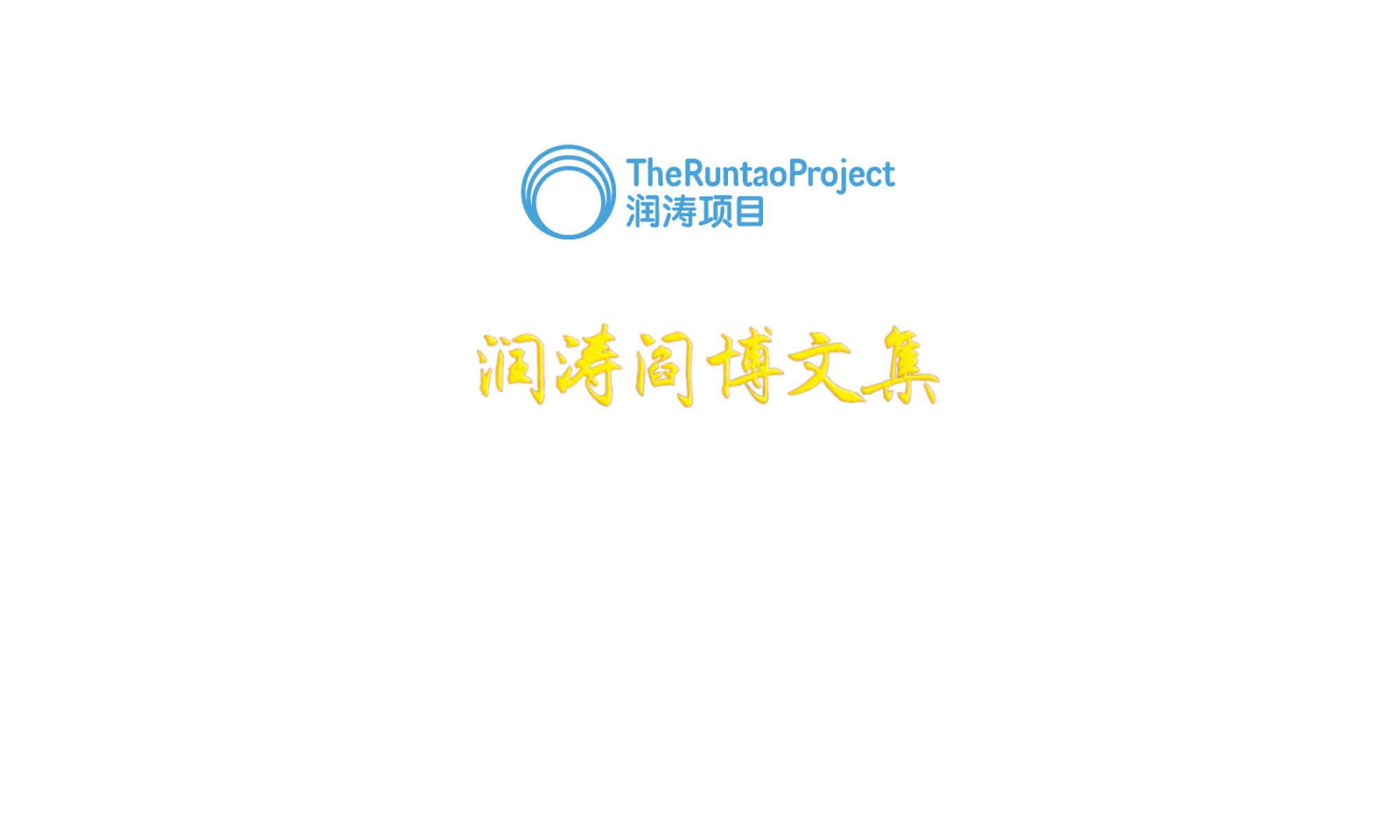Views: 932
【编者按:近期电视剧《庆余年》的热播引发了人们对其中的灵魂人物叶轻眉的探讨,作为虚构的拥有现代平等意识的穿越者叶轻眉,有着在封建专制社会庆国创造‘人人平等的法治社会’的美好愿景。然而她的结局却是给悲剧英雄:奋斗目标落空,自己也成了皇权斗争中的牺牲品。
文学作品是现实的折射,虽然叶轻眉是一个虚构的追求现代文明的理想主义者,但她折射的是中国历史上不少有着远大理想的思想家及实践者。包括夏明翰、江姐、林昭、张志新等“直如弦死道边”的楷模与英雄人物。
本文总结了老阎关于社会发展及英雄的观点,请在评论区讨论你对英雄与时势的看法。
文章编辑及撰写:大智若愚33】
老阎思想总结:不能够顺历史之势而为的英雄都是自不量力,让人叹息。
从历史长河讲,不论是革命还是改革,都是竹篮打水一场空。历史有其自身的发展规律,不以人的意志为转移。人,不论秉承什么意志,只有短期效果。那些历史英雄人物,就是血太热了而已,对历史的发展是没什么价值的。就好比黄河水流入大海,不论你是改道还是堰塞湖,还是原来的九曲十八弯,最后到达东海的时间基本上差不多。所不同的是哪些人被淹,与改道还是溃堤还是堰塞湖有关。明白了这些,那些想成为历史英雄的,最后都是自不量力,被历史的浪花淘尽,留下的只是说书人的笑谈。
当然,人类历史的确有为社会进步而奋斗的英雄人物。然而,社会发展有其自身的规律,有没有英雄,历史都是按照自己的轨迹而行。就是秦始皇活过来,今天他也无法让人们放弃电灯换回油灯,把汽车砸了换回牛车。江姐们的献身是毫无价值的,因为有没有毛泽东的成功,今天的中国都是现在这个样子。黄河水从源头流入东海,不论是否改道,总时间都差不多。社会也一样。
其实涉及到英雄这个话题,它是人性里令人悲哀的特征。早在后汉书里就有:“直如弦,死道边;曲如钩,反封侯。”不论在军事领域还是在政治领域甚或当今的经济领域,“卑鄙—卑鄙者的通行证;高尚—高尚者的墓志铭。”的确是常态。
中国历史的悲哀就在于:英雄只是在乱世时出现,才有了“乱世出英雄”的名言。其实,在乱世到来之前出英雄就好多了,可以减少社会动荡的成本。可真实的历史总是不到烂透了的那一天,不会痛下决心从根本上改革,才导致–腐败—造反—再腐败—再造反的恶性循环。
浪淘尽千古英雄人物,然而,基本上都是悲剧英雄。在润涛阎看来,英雄是悲剧的副产品。别出英雄,要比出英雄好得多,因为导致悲剧的关键因素消除了。遍地英雄下夕烟的年代是悲哀的年代,是我们要避免的年代。悲哀起于人祸,天灾只是给衡量人祸一个机会。
看一个人是不是伟人,要看他的言行是顺历史潮流而动还是逆势而为。这需要从战略高度看。很多时候,逆势而为,就连眼前利益也得不到。
讨论主题:
1. 除了政治领域,经济科技等领域也有不少没有顺势而为或者太超前历史进程的悲剧英雄。请谈谈历史上那些让你扼腕叹息的悲剧英雄,请列举并总结其经历,以及谈谈你对其惋惜的理由。
2. 你认为当前社会有哪些顺势而为的英雄(政治、经济、科技等领域),对社会进步有着正面的作用?
3. 你认为未来社会发展在哪些领域需要更多的顺势而为的英雄?
谢谢大家。
润涛项目读书会
文章索引:
| 题目 | 文学城链接 | 博客链接 |
| 谈谈美国的借力打力 | 链接1 | 链接2 |
| 邓小平的悲剧:六四与香港回归 | 链接1 | 链接2 |
| 与邓小平离婚的金维映至死都爱着邓小平 | 链接1 | 链接2 |
| 从奥巴马的两个女强人看涛哥的无所作为 | 链接1 | 链接2 |
| 我们国家教育失败的关键点在哪里? | 链接1 | 链接2 |
| 中国与美国的现状与未来 | 链接1 | 链接2 |
| 七律 悼林昭(步韵毛泽东) | 链接1 | 链接2 |
[Editor’s note:
The popularity of the TV series “Joy of Life II” has recently spurred discussions about Ye Qingmei, the soul character. In Qing Country, a feudal autocracy, the magnificent notion of constructing a “rule of law society where everyone is equal” comes from Ye Qingmei, a fictional time traveler with a modern understanding of equality. Tragically, her story ends with her becoming a victim of the struggle for imperial control and her struggle’s purpose not being achieved.
Literature reflects real life. Even though Ye Qingmei is a fictional character from modern times, she is a representative of many morally upright thinkers and practitioners from Chinese history. Xia Minghan, Jiang Zi, Lin Zhao, Zhang Zhixin, and other “Straight as a string, dead side of the path” models and heroes are among them.
I have summarized Lao Yan’s views on heroes and societal progress in this post; feel free to add your own.]
Yan Thought Summary: Heroes who are unable to follow historical trends are all self-inflicted tragedies that cause people to sigh.
From the perspective of the great river of history, all endeavors, whether they revolutionary or reformative, are in vain. Free will does not affect the laws of development that have been established by history. No matter how determined someone is, the results are just temporary. Those historical figures are simply too impetuous and do not advance the course of history. It is like the Yellow River running into the sea. The time it takes to get to the East China Sea is essentially the same whether you take a different route, dam the lake, or travel via the original nine or eighteen bends. Which individuals drown differs depending on whether the embankment collapsed, the lake was dammed, or a different route was taken. Those who wanted to be historical heroes eventually overestimate their own abilities and were lost to the passage of time, leaving behind nothing except the tales and the jokes of the storyteller.
Throughout human history, heroes have fought for social progress, of course. However, social development follows unique rules. History proceeds according to its own course, with heroes or not. Even if Qin Shihuang were still alive, he could not make people give up oil lamps for electric lights or crush vehicles in favor of ox carts. The sacrifices made by Jiang Jie and others are in vain since, whether Mao Zedong had been successful or not, China would still be the same today, experiencing rapid economic growth coupled with widespread corruption. The Yellow River flows into the East China Sea from its source in about the same period of time whether it is diverted or not. This holds true for society as well.
The concept of heroes is actually a sad part of human nature. It was written as early as the Book of the Later Han Dynasty: “Straight as a string, die on the road; curved as a hook, return to the title of marquis.” In the realms of politics, the military, and even the modern economy, “nobleness—the epitaph of the noble; meanness—the pass of the mean.” Yes, it is the standard.
It is a sad reality of Chinese history that heroes only appeared in hard times, which gave rise to the well-known phrase “heroes emerge in troubled times.” It would really be better to have heroes before bad times come since it can reduce the cost of social unrest. But in actual history, things never appeared to work out well until they were thoroughly corrupted, which starts a never-ending cycle of corruption, revolt, corruption, and rebellion.
Over time, history has swept many heroes away, but at their core, they were always sad heroes. Yan Runtao believed that heroes are the result of tragedies. It is far better to have no heroes if we can eliminate the main sources of tragedy. The dismal age of heroes everywhere in the dark smoke is one we should avoid. Since all suffering is the outcome of man-made disasters, natural disasters are only a barometer for them.
To judge whether a person is a great man, we must see whether his words and deeds are in line with the trend of history. This requires a strategic perspective. In many cases, if they go against the trend, they will not even get the immediate benefits.
— end of summary —
Topics for discussion:
1.There are numerous tragic heroes in the domains of science, technology, military, and the economics in addition to the political sphere, who either followed the wrong trend or were too far ahead of their time. Please discuss the tragic heroes in history that brought you to tears, briefly describe their sufferings, and discuss the reasons you regret them.
2. Which contemporary heroes—in the fields of politics, economics, science, and technology—do you think follow the trends and positively influence social progress?
3. In what areas do you think societal growth will need more trend-following heroes in the future?
